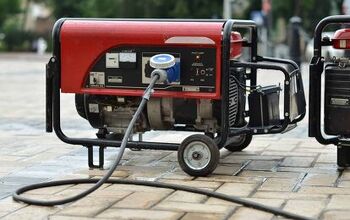Comfort Zone Heater Keeps Shutting Off? (We Have A Fix!)

Comfort Zone manufacturers a host of styles and sizes of electric space heaters. The technology is similar across the different types of heaters. These similarities make them vulnerable to the same sorts of problems. One of the most problematic situations is a Comfort Zone heater that keeps shutting off.
In general, electric space heaters are rather simple devices. However, some of the safety features and the operating technology make these heaters prone to failure. The cause of a Comfort Zone heater shutting off repeatedly is usually traceable to a faulty component or a problem with the power supply in the home.
Diagnosing a problem that causes a Comfort Zone heater to shut off intermittently or regularly when used can be frustrating. However, following a few quick steps can usually pinpoint the problem and point you toward a solution. Here is our step-by-step instruction to help isolate the problem with your Comfort Zone heater.
Finding the Problem
The problem that causes a Comfort Zone heater to turn itself off is related to one of the safety features included in most electric space heaters. There may also be problems with the power supplied to the heater by your home’s electrical system. In either case, once diagnosed, these problems are easy to remedy in most cases.
Step 1: Be Safe and Don’t Take Chances
Remember that your space heater runs on 120 volt AC. One hundred twenty volts is enough electrical energy to cause serious harm if you inadvertently cause a short circuit. It would be best if you took some safety precautions when working on your Comfort Zone space heater.
Before opening any compartments or internal control spaces on your Comfort Zone space heater, be sure that the heater is unplugged from the electrical outlet. Never work on the internal wiring or controls with the heater energized.
Step 2: Check the Power Delivery System
Your Comfort Zone heater depends on the electrical power supplied by your home’s electrical system. Several problems with the power system can cause intermittent problems with your space heater, causing it to shut off unexpectedly. Check your home’s electrical system for these problems first.
- Check the Breaker – A faulty breaker might be the cause of your problems. The breaker may look perfect at a glance. However, even breakers age and wear out. The breaker may not be delivering enough current to the heater. If the breaker continually trips, it may need replacing, or it may indicate another problem. Contact a licensed electrician to determine if you need to install a new breaker.
- Is Your Wiring Up to the Task – Your Older home may not have wiring that can handle the electrical loads required by some modern space heaters. Inadequate or undersized wiring is dangerous if overloaded for very long. Trying to operate equipment too large for the wiring in your home can cause electrical shorts and fires. Consult an electrician to determine if the wiring in your home is adequate to run your Comfort Zone heater.
- Damaged Components – A damaged electrical outlet or damage to the power cord on your Comfort Zone heating may cause the heater to operate erratically. Make sure the electrical outlet is not cracked or broken. Telltale black marks on the outlet may indicate that the outlet has been overloaded or is damaged internally. The power cord on your Comfort Zone heater should be free of any kinks, cuts, or other damage, and the plug should be in the same condition.
Step 3: Check the Auto-Safety Features on your Heater
Modern space heaters have several internal safety features. One of these is the auto-off safety feature. These auto-off features protect from several different scenarios.
- Anti-tip switches turn the power to the space heater off if the heater tips over. All comfort Zone space heaters come with this safety feature. The space heater but be sitting almost perfectly upright and in a stable position. If the heater is tilted even a few degrees from vertical, the auto-ff feature may activate. If the heater is not stable and wobbles or moves, the safety switch may engage and turn off the power to the heater.
- Over-heat sensors monitor the internal temperatures of your Comfort Zone space heater. These sensors are small thermocouples. If the interior parts of your space heater reach a certain temperature, the thermocouple will open and shut off the electricity to your heater. Most of these overheat sensors must be manually reset before the heater operates again.
- An internal circuit breaker offers an additional layer of electrical safety. If your Comfort Zone heater begins to draw more electrical current than its rating, the internal circuit breaker will open and shut the electricity off. Before the heater starts again, you must manually reset this circuit breaker.
In any of these cases, before you put the heater back into service, you should make sure the heater won’t suffer the same conditions again. Make sure the heater is in a stable upright condition. Maintain good airflow around your Comfort Zone heater to ensure the thermocouple stays cool. If the internal circuit breaker keeps tripping, there may be a problem with the electrical system in your home.
Step 4: Check the Air Filter if Equipped
Some Comfort Zone heaters include a replaceable air filter element. This air filter element protects the heating coil and helps keep the air in your room cleaner and fresher. If the air filter clogs, it reduces the amount of air flowing through the space heater. Reduced airflow can cause the space heater to reach unsafe temperatures. In this instance, the safety sensors on the heater will shut the heater off.
Step 5: Internal Control Problems
A Comfort Zone space heater that regularly turns itself off may have issues with the internal parts of the control systems. Several parts make up the internal control systems. These parts are prone to failures that can cause intermittent operational issues. The parts that are known to fail include:
- The on/off switch
- The thermostat switch
- The thermostat board
Diagnosing problems with these components of your Comfort Zone heating is usually beyond the average homeowner’s scope and ability. We suggest that you consult with a qualified appliance repair shop if you suspect problems with the electrical components of your Comfort Zone space heater.
Step 6: Suspect a Faulty Heating Element
A bad heating element on your Comfort Zone space heater may cause intermittent operation issues. A damaged or cracked heating element may operate normally until it reaches a certain temperature. At this point, the element fails or overheats, and the space heater shuts down. Waiting for the element to cool may allow you to restart the heater. Replacing the heating element is the solution to this problem.
Video: How to Fix a Comfort Zone Heater
Which is Better: Repair or Replace?
We never like to toss out anything that still has value and service. Unfortunately, society has adopted a much different attitude. All too often, easily repairable appliances go to the garbage bin in favor of a replacement.
From an economic and ecological standpoint, repairing an appliance is often a better choice. Repairing a minor problem saves money, saves resources, and reduces the amount of landfill space taken up by discarded appliances.
What is the Best Kind of Space Heater?
Choosing between the different types and styles of space heaters can be confusing. The choice should take into consideration the area you want to heat and your expectations of the heater. The more common types of space heaters offer different options and are better at specific applications.
Radiant Style Heaters
Radiant-style heaters are good choices for your home if you want to heat a smaller area quickly. Radiant heaters don’t heat the air. These heaters project infrared radiation that heats objects like people and furniture.
Radiant heaters are great for heating people sitting or standing in front of the heater. They get hot quickly, put out lots of directional energy, and are usually relatively compact and small in size.
On the downside, radiant heaters get hot and can cause burns to people and animals who inadvertently get too close or touch the heater. Putting a radiant style heater too close to combustible fabrics and materials can create a fire hazard as well.
Convection Style Heaters
Unlike radiant heaters, which heat people and objects, convection heaters heat the air in each space. The radiator-style oil-filled space heater is one of the most popular convection-style space heaters on the market.
Convection heaters raise the temperature of the air near the heater. As the air gets warmer, it rises toward the ceiling, where it cools and begins to sink back to the floor. This air current is the key to convection heating. Convection space heaters need lots of air circulation to operate at their best.
Convection heaters tend to get hot on the surfaces of the heaters. Small children and pets can suffer burns by touching an operating convection-style space heater. Take care to ensure adequate air circulation around the heater. Never place a convection heater where pillows, curtains, or other materials may fall on the heater
Staying Warm and Safe
The goal of anyone using a Comfort Zone space heater is to stay warm. The unspoken rule is to stay warm safely. A Comfort Zone spacer heater that keeps shutting off is sending a message. Something is not right, and you must diagnose and correct the problem for the safety of you and your family.
Related Articles

Dennis is a retired firefighter with an extensive background in construction, home improvement, and remodeling. He worked in the trades part-time while serving as an active firefighter. On his retirement, he started a remodeling and home repair business, which he ran for several years.
More by Dennis Howard



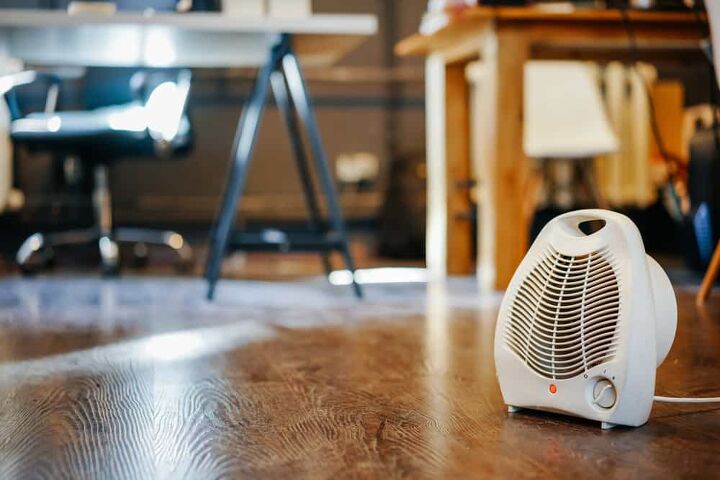






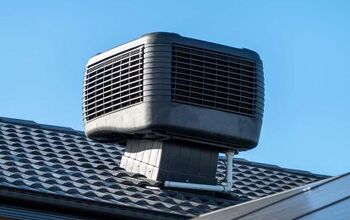
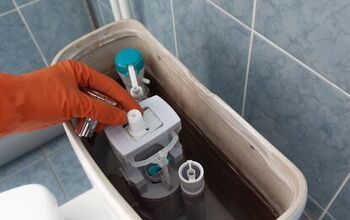

![Finishing Basement Without Permit [Is It Really Illegal?]](https://cdn-fastly.upgradedhome.com/media/2023/07/31/9070078/finishing-basement-without-permit-is-it-really-illegal.jpg?size=350x220)

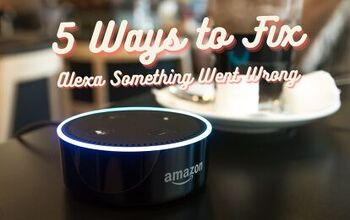


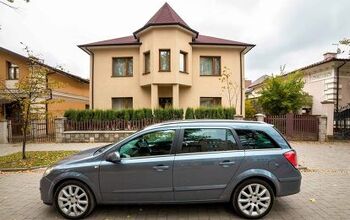
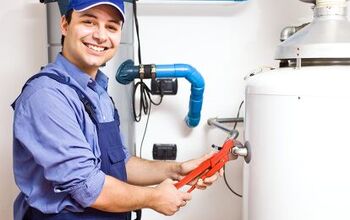


![How To Reset A Whirlpool Cabrio Washer [In 5 Easy Steps!]](https://cdn-fastly.upgradedhome.com/media/2023/07/31/9076531/how-to-reset-a-whirlpool-cabrio-washer-in-5-easy-steps.jpg?size=350x220)


